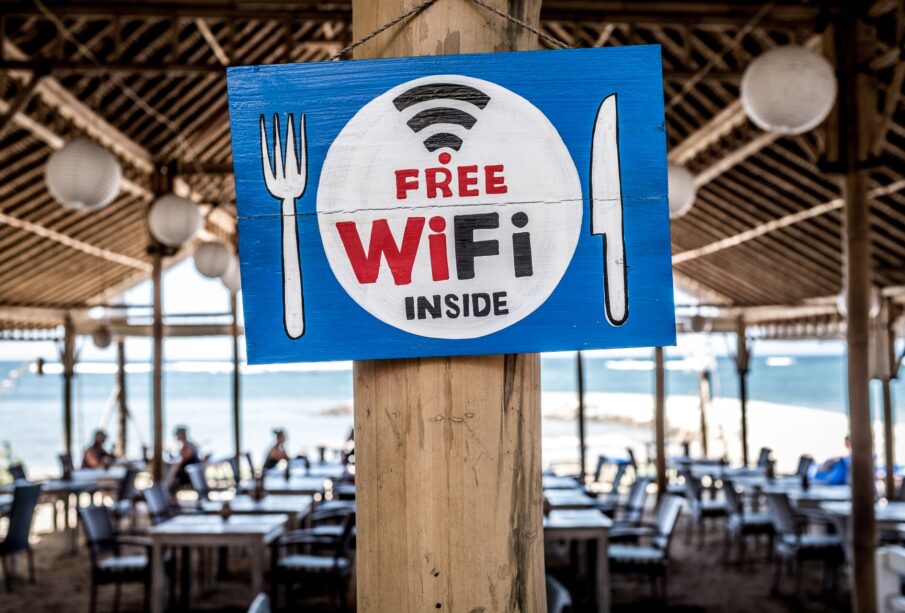How Can You Protect Your Wi-Fi?

In this day and age, Wi-Fi is one of the most important devices in your home. Especially with the increasing popularity of smart homes, you need a reliable Wi-Fi to manage your smart devices. As important as it is to have a Wi-Fi connection, it is important to understand the challenges that come with it.
One of the most pertinent concerns is the safety and security of your Wi-Fi. Many Wi-Fi points and routers like the Nest Wi-Fi Point already come with several features that help keep your connection secure. However, you may want to consider a few more points.
Table of Contents
Change Passwords and Other Default Settings
You do not want unnecessary people tapping into your Wi-Fi network. It could be a great security threat for your connection. To ensure that you are always safe, you change default settings in your Wi-Fi settings. The most important of these is the password. Make sure your Wi-Fi connection has a strong password. Do not set a password that anyone can predict easily. While this seems like a pretty obvious point to consider, most people do not take it into consideration.
Use Firewalls
Most of us are not very tech savvy and so we may ignore this point. However, it is very important to realize that having firewalls is important. Most of you may ask what a firewall is. A firewall is a network safety device that observes traffic that is entering and leaving. It then chooses to permit or halt particular traffic, based on a well-defined set of security guidelines. Most Wi-Fi routers available in the market already have a firewall. However, you will have to enable the firewalls as they are often disabled in the default settings.
Position Router Wisely
You may find this suggestion vague. However, this is the one of the deciding factors, given that anyone with notorious intentions can intercept your Wi-Fi connection. If you place your router near windows, doors or gallery, then there are high chances that your Wi-Fi security may be at risk. The more your Wi-Fi is near to the center of your home, the safer and secure it is.
Do Not Be Lazy to Update Software
Many people never pay attention to software updates that come with their router. It is important to understand that these updates are there because rigorous research goes into identifying security risks. With technological advancement taking place at a fast pace, security breaches and loop holes in systems are also increasing at faster rate. Hence, these updates are sent as soon as a security breach is detected, so your security is not at stake. Make sure you take note and update timely any alerts that you have received. This has a great impact on your Wi-Fi security.
Keep Your Wi-Fi Off In Your Absence
This may sound obvious, but it is probably the best suggestion to protect your home system from a potential attack. Turn off your Wi-Fi router when you are not at home. Your Wi-Fi network does not have to run 24/7. Turning off your Wi-Fi when you are not at home, reduces the probability of opportunistic hackers trying to intercept your house network when you are away. This is a practical advice that only requires a little vigilance and attention, but goes a long way in keeping your network protected.
Network Encryption Is a Must
Encryption is one of the most effective ways of protecting your data. Encryption ensures that your data is scrambled, so hackers cannot decrypted it to enter your system.
WPA2 type is the most commonly use encryption as it allows the security required for a house Wi-Fi network. If you have devices that are up to 10 years old, you need to check if they are compatible with WPA2. In case they are not, you may want to replace those home devices or upgrade them for improved safety and performance.
Disable Remote Access
Remote access is often required for admin-level access. However, if you do not need that, you should turn it off in your Wi-Fi settings. Many routers that are available in the market come with specifications that are designed to allow remote access. You can carefully turn these features off in settings. In fact, most remote access apps work fine without them. If you use your Wi-Fi connection for gaming consoles and smart TVs, then you may also want to consider “universal plug and play.” This can make your life easier and keep your connection secure.
Separate Network for Visitors
If you have difficulty telling your guests “no” when they ask you for the password to your Wi-Fi network while you fret over the possibility of a security breach, then this is a great solution. If you want to allow your guests to use your Wi-Fi, it is wiser to allow them access to a guest network instead of your firm’s or home private network. This is significant for security reasons as well as to avoid your network from getting infected with viruses, malware, and any suspicious hacking activity.
In Conclusion
While there may be more ways to protect your Wi-Fi network from malicious activity, these are some of the most important and basic steps. Wi-Fi security is extremely important, especially in this day and age when there are so many security threats.










